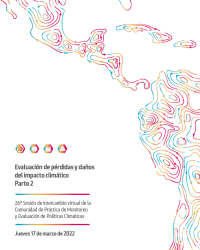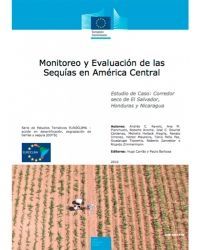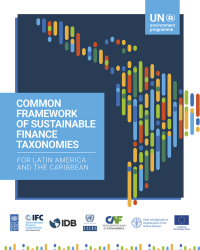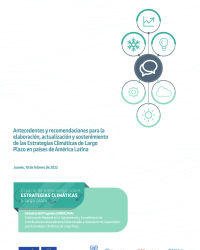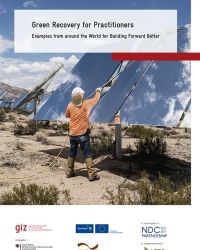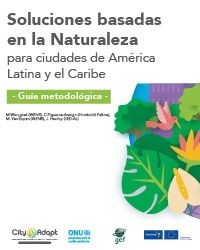Búsqueda por categoría
Más descargados
| Guía Cambio Climático y agricultura familiar con lentes de género 10820 Descargas | 2.49 MB | |
| Informe anual 2021-2022 6635 Descargas | 4.62 MB | |
| Transversalizando la perspectiva de género en proyectos de acción climática: caja de herramientas 3526 Descargas | 6.6 MB |
Zero Carbon 2019
394 Descargas
The UNEP has developed the “Zero Carbon Latin America and the Caribbean: the opportunity, cost and benefits of the coupled decarbonization of the power and transport sectors” report as a follow up to an earlier analysis released at COP 21 (December 2015) on a pathway for full decarbonization of the regional economy in Latin America (UNEP Zero Carbon Latin America, 2015). The report will be followed by an analysis on land use options and oceans as a central anchor for decarbonization strategies in Latin America and the Caribbean, scheduled to be completed by COP 26 (December 2020).
The objective of this report is to illustrate the opportunity, costs and benefits of the coupled decarbonization of the power and transport sectors in the Latin America and the Caribbean (LAC) region by mid-century. The report also presents on the ground examples, from successful policies to business models, which signal a potential coupled decarbonization transition. If escalated, would put the region in a virtuous scenario, raising the ambition of next generation of Nationally Determined Contributions to the Paris Agreement (NDCs).
| Categoría: | Estudios técnicos |
| Tamaño del archivo: | 25.29 MB |
| Hits: | 4326 Hits |
| Descargas: | 394 veces |
| Título: | Zero Carbon 2019 |
| Autor: | Walter Vergara; Jorgen Fenhann; Silvia R. Santos da Silva |
| Año: | 2019 |
| Autor institucional: | ONU Medio Ambiente |
| Formato: | PDF: 249 p. |

